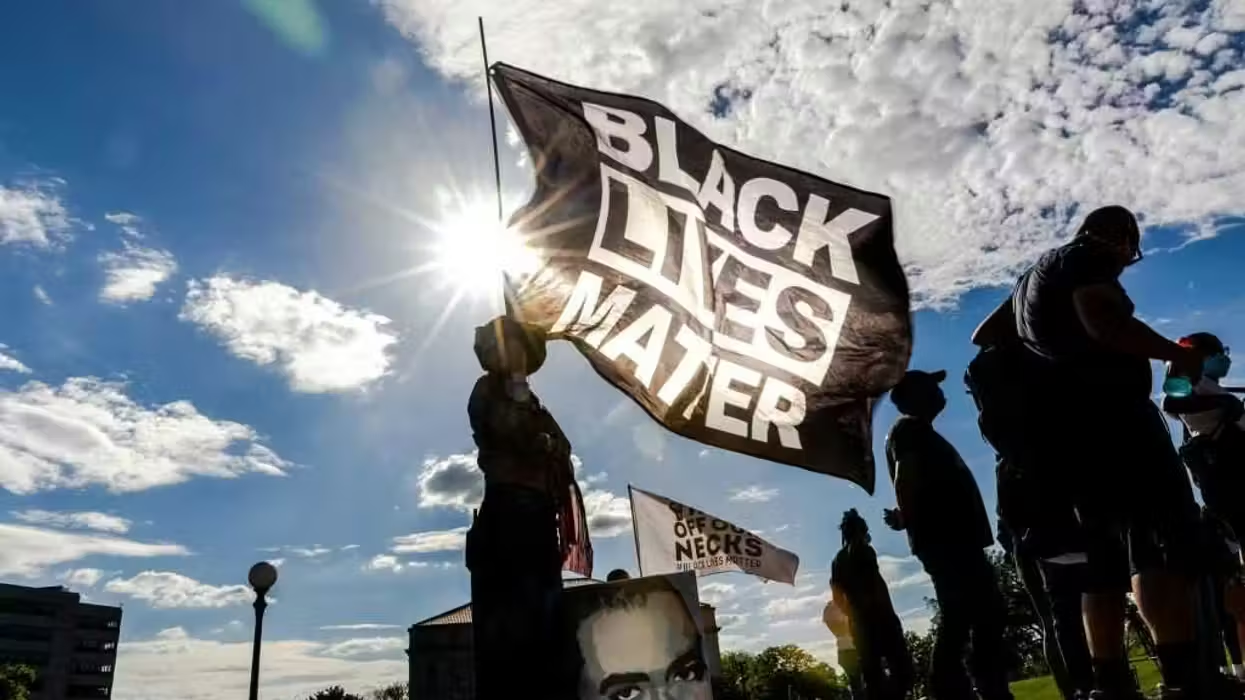
© 2025 Blaze Media LLC. All rights reserved.
Minnesota Taxpayers Stuck Footing The Bill For Wind They Can't Use or Sell
April 19, 2012
"It’s a well-intentioned law that did not contemplate the inexplicable law of unintended consequences..."
 Taxpayers in Minnesota ended up paying $70 million more than they needed to for electricity in 2011 because of "green" energy mandates, according to the Minnesota Rural Electric Association (MREA).
Taxpayers in Minnesota ended up paying $70 million more than they needed to for electricity in 2011 because of "green" energy mandates, according to the Minnesota Rural Electric Association (MREA).
“Taxpayers already pay a high price to subsidize wind energy through billions in federal grants, loan guarantees and tax credits that prop up the ‘windustry,’” Tom Steward writes for the Minnesota State News.
“Now the bill for state renewable energy mandates is coming due with hundreds of thousands of Minnesota electric co-op and utility customers picking up the tab,” he adds.
A $70 million dollar tab, that is.
Related: Gov’t-Subsidized Wind Farms Told NOT to Produce Energy
“It’s an enormous subsidy. You have to add wind power, whether you need it or not,” said Mark Glaess, MREA executive director. “Right now we’re paying for wind we don’t need, we can’t use and can’t sell.”
So how did this happen?
The Renewable Energy Standard (RES) passed by the 2007 Minnesota State Legislature directs electric utilities to ramp up their percentage of renewable energy sales to 25 percent by 2025. Put another way, one of every four kilowatt hours must come from renewable energy by 2025. Unlike many other states, Minnesota does not exempt co-ops and municipal utilities from complying with renewable energy standards. To meet the state’s escalating demands, rural electric co-ops and utilities locked in long-term “take or pay” contracts to purchase power from wind farms.
However, a drop in demand due to the lagging economy and competition from natural gas pushed the price of energy down significantly.
“The RES exists in a sort of price vacuum. No matter that coal-generated power costs considerably less than wind. Dozens of Minnesota co-ops are stuck with higher, pre-recession prices for surplus wind power which must be bought and distributed,” Steward writes.
“The difference between what the wind power costs and what it resells for now adds up to tens of millions of dollars a year statewide with rural residents caught in the middle,” he adds.
Which means Minnesota taxpayers are stuck paying for "green" energy regardless of whether they can sell it.
 “It’s a well-intentioned law that did not contemplate the inexplicable law of unintended consequences because it never considered resource planning to meet energy load and demand. What happens when the load goes down? Our members still have to buy it,” Glaess said.
“It’s a well-intentioned law that did not contemplate the inexplicable law of unintended consequences because it never considered resource planning to meet energy load and demand. What happens when the load goes down? Our members still have to buy it,” Glaess said.
“And we’re going to have to increase rates to pay for our incumbent coal generation, which is getting smacked by the EPA (Environmental Protection Agency),” he adds.
Hot Air’s Ed Morrissey is not particularly pleased with the situation:
Spare us, please, from “well-intentioned” laws. The legislature attempted to dictate market supply and demand, and it produced the failure that this kind of central planning always produces. As a result, Minnesotans have to pay energy costs above current market levels at a time when their disposable income has become more and more restricted, thanks to price increases in gasoline and food. It’s yet another demonstration of the folly of central planning.
Co-ops and utilities in Greater Minnesota say some customers already have a difficult enough time paying their utility bills without the mandate. Considering the fact that the MREA is only halfway through implementing the mandate, it's probably going to a lot worse.
“What’s awful is the percentage of customers who are late in paying their electric bills,” said Glaess.
“The average percentage that poor people are spending on energy has increased by a great deal and then they’re throwing more of this on us? It’s regressive energy economics,” he adds.
This article has been updated.
Want to leave a tip?
We answer to you. Help keep our content free of advertisers and big tech censorship by leaving a tip today.
Want to join the conversation?
Already a subscriber?
more stories
Sign up for the Blaze newsletter
By signing up, you agree to our Privacy Policy and Terms of Use, and agree to receive content that may sometimes include advertisements. You may opt out at any time.
Related Content
© 2025 Blaze Media LLC. All rights reserved.
Get the stories that matter most delivered directly to your inbox.
By signing up, you agree to our Privacy Policy and Terms of Use, and agree to receive content that may sometimes include advertisements. You may opt out at any time.






